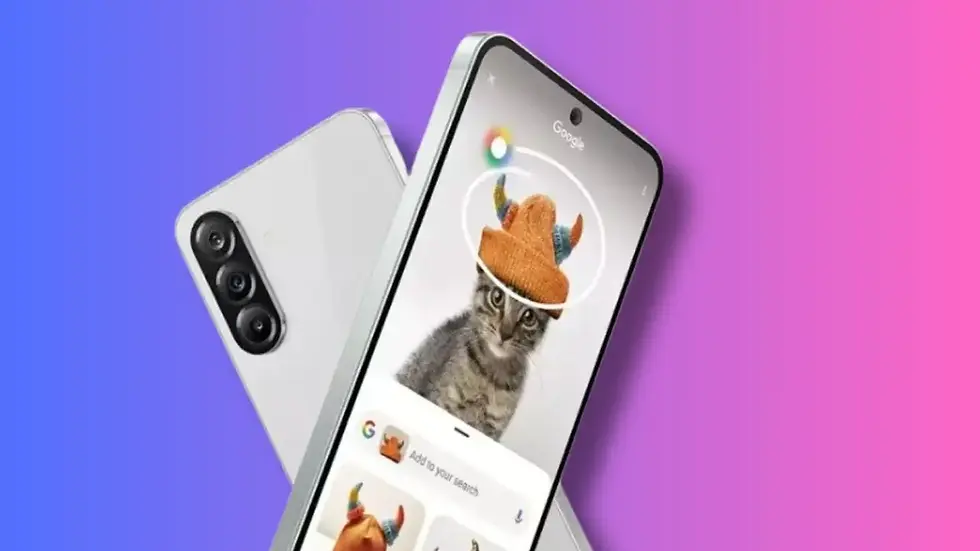How AI Will Change Android Phones in the Next 3 Years
- Utshab Biswas

- Aug 2, 2025
- 3 min read
Artificial Intelligence (AI) is already changing the way we use our smartphones, but the next few years will see some revolutionary changes particularly on Android phones. With AI increasingly built into hardware and software, Android phones will get smarter, faster, more personalized, and much more efficient. From improving day-to-day user experience to redefining camera photography and performance optimization, here's a dive into how AI will redefine the future of Android smartphones.

1. Hyper-Personalized User Experience

Perhaps the most significant change AI will make is how Android phones learn to adjust to users based on their respective likes, dislikes, and behavior. Upcoming devices will employ on-device AI to understand your routines the time you wake up, which apps you access most frequently, what type of content you like and adjust system settings, notifications, and even screen real estate dynamically. Google's experiments in Android's Adaptive Battery and Brightness will become full contextual awareness. For example, your phone will turn on "Do Not Disturb" mode automatically when you're at the workplace or dim brightness when you're lying in bed reading. All this customization will make the phone less of a device and more of an actual assistant.
2. Breakthrough AI Cameras

Mobile photography will enter a new age, thanks to the progress made in AI-based computational photography. Whereas existing features such as Night Mode, Magic Eraser, and Portrait Mode already leverage AI, future Android smartphones will take it to a new level. Look out for real-time scene reconstruction, multi-angle photo creation, and even emotion-based photo beautification. Not only will AI enhance the quality of images, but it will also recommend the best photo, automatically frame group photos, and even re-light faces after capture. With generative AI, smartphones will eventually have the ability to fully recreate or erase objects from photographs as if they never existed.
3. On-Device Generative AI Assistants

Google Gemini AI and other such models like Samsung Gauss are already being integrated into Android experiences. Soon, we will witness these AI models residing locally on your phone, which implies improved privacy and decreased latency. Your Android phone will soon summarize emails, generate content, translate in real-time, and even rewrite or auto-compose messages while on the move all offline. This will prove particularly revolutionary for users based in areas of poor connectivity or data security-conscious users.
4. Intelligent Performance and Battery Management

AI will make Android phones significantly more efficient both in terms of performance and battery usage. With processors such as Qualcomm's Snapdragon that include an NPU (Neural Processing Unit) integrated directly on the chip, Android phones will more intelligently manage resources depending on what you're doing. AI-driven predictive models will scan your usage and pre-load apps or features even before you launch them minimizing loading times and energy waste. Battery life might also improve as AI anticipates and avoids battery wear by optimizing charging cycles and background activities.
5. AI for Accessibility and Multilingual Support

AI will also transform accessibility features in Android. Real-time voice translation and transcription will further be more accurate, facilitating improved communication in different languages and assisting the hearing-impaired. Users who are vision-impaired can be assisted by sophisticated object recognition and audio descriptions of environments using the camera. AI will make Android an even more accessible platform as it dismantles obstacles for millions of users all over the globe.
6. Better Security and Spam Defense

Android security will become more intelligent and proactive. AI will be instrumental in identifying malicious applications, phishing attacks, and suspicious user behavior in real-time. Google Play Protect is already using AI to scan apps for threats, but upcoming systems will detect and counter threats even before users even know something is amiss. AI-powered call screening, spam filtering, and scam detection will become more precise, making users safer in a world where scams and data breaches are common.
7. The Age of AI-Generated UI and Content

In a daring new direction, AI can assist in generating dynamic user interfaces. Android skins such as One UI, OxygenOS, and Pixel UI could eventually let users customize theme, icons, and layouts with AI-generated options to suit personal preference. Generative AI may also help auto-generate blog intros, social media captions, or even simple video edits straight on your phone. This could turn each Android phone into not only a communication device but an actual content creation device.
In the next three years, AI will turn Android phones from intelligent devices into intelligent companions. These advances won't be mere incremental improvements they'll be life-changing features that recast what we can do with a mobile phone. With on-device AI powerhouses, smarter cameras, stronger security, and profoundly personalized experiences, Android will remain at the forefront of mobile innovation. For users, it means improved performance, increased convenience, and a smartphone experience that's uniquely yours.
Stay tuned with AndroBranch as we keep following the development of AI and how it affects the Android platform.




Comments